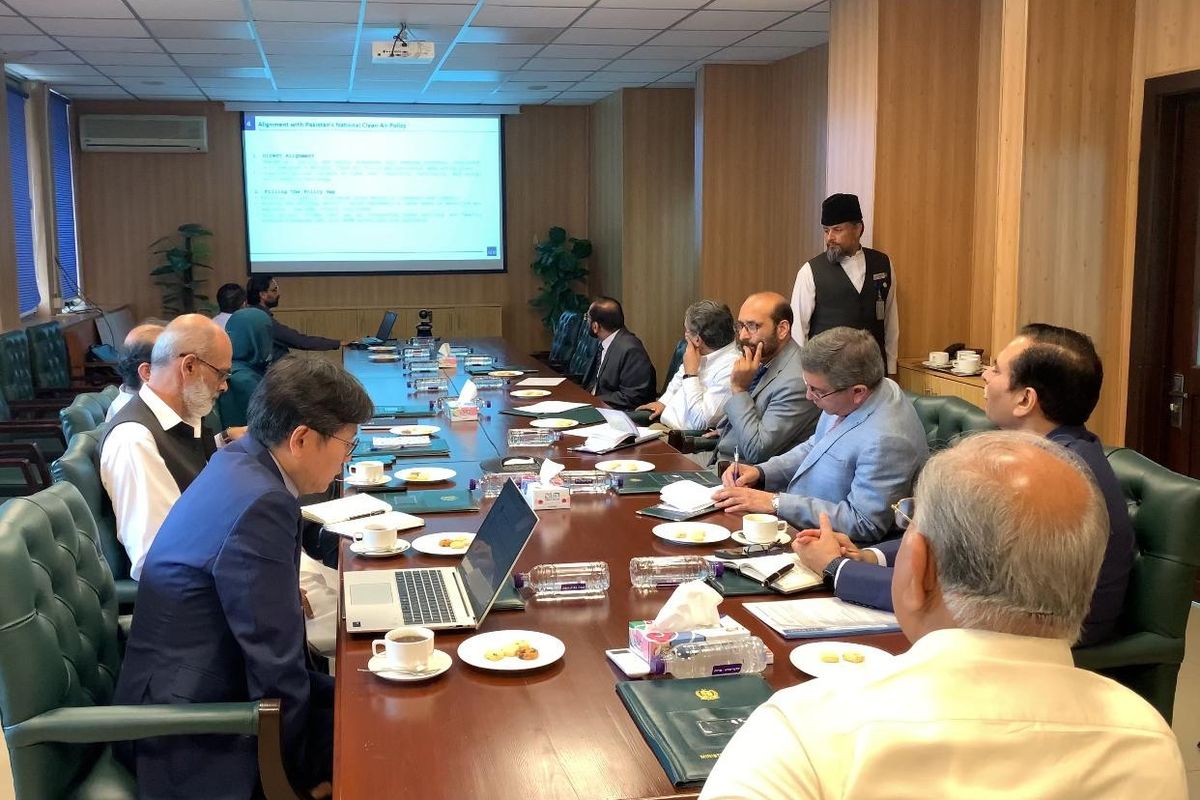Deadlock in talks risks unrest in Pakistan-administered Kashmir
Protesters warn of a full lockdown beginning Sept. 29 if demands are not met

Javed Hussain
Correspondent
I have almost 20 years of experience in print, radio, and TV media. I started my career with "Daily Jang" after which I got the opportunity to work in FM 103, Radio Pakistan, News One, Ab Tak News, Dawn News TV, Dunya News, 92 News and regional channels Rohi TV, Apna Channel and Sach TV where I worked and gained experience in different areas of all three mediums. My journey from reporting to news anchor in these organisations was excellent. Now, I am working as a correspondent with Nukta in Islamabad, where I get the opportunity of in-depth journalism and storytelling while I am now covering parliamentary affairs, politics, and technology.

Negotiations between a delegation of Pakistani government officials and protesters in Pakistan-administered Kashmir ended Thursday in deadlock
PML/N
Marathon talks stretched for more than 12 hours
Government delegation says only Parliament can make constitutional amendments
Negotiations between a delegation of Pakistani government officials and protesters in Pakistan-administered Kashmir ended Thursday in deadlock, raising fears of renewed unrest in the disputed Himalayan region.
The Joint Awami Action Committee, or JAAC, has warned of a full lockdown beginning Sept. 29 if its demands are not met.
The coalition is pressing for the abolition of reserved refugee seats in the regional legislative assembly, which it says allow political manipulation by installing non-Kashmiris.
It is also demanding cuts to perks and privileges enjoyed by the prime minister, Cabinet, and senior officials, along with fairer resource distribution, greater transparency, and curbs on corruption.
On Prime Minister Shehbaz Sharif’s orders, two federal ministers — Tariq Fazal Chaudhry and Amir Muqam — traveled to Muzaffarabad on Wednesday for marathon talks that stretched more than 12 hours.
At a joint press conference, the ministers said most of the JAAC’s demands had been accepted but rejected those they said fell outside constitutional and legal limits.
“Any demand requiring constitutional amendments can only be addressed by Parliament,” Chaudhry said. “A handful of individuals sitting behind closed doors cannot decide constitutional changes for Pakistan-administered Kashmir.”
Muqam echoed that stance, saying: “We accepted every demand that fell within our jurisdiction, but the Committee kept bringing forward new demands. We cannot commit to demands that fall outside the constitutional domain.”
Political backdrop
Earlier this year, the government sought to restrict demonstrations under a Peaceful Assembly and Public Order Ordinance but withdrew the measure after backlash.
This week, the ruling Pakistan Muslim League-Nawaz convened a political committee meeting in Islamabad. Senior leaders, including Rana Sanaullah and regional party head Shah Ghulam Qadir, urged the government to avoid force and called for dialogue and implementation of agreed measures.
The PML-N reiterated its commitment to “safeguarding democratic traditions” while urging the JAAC to remain within constitutional limits.
Roots of the movement
The JAAC emerged from economic grievances in mid-2023, when protests broke out over a sharp rise in flour and electricity prices. The movement — an alliance of lawyers, traders, students, and civil society groups — has since organized repeated strikes and marches.
Tensions peaked in May 2024, when thousands marched on Muzaffarabad demanding cheaper electricity and flour subsidies. Clashes with paramilitary forces left several protesters and police dead, prompting Pakistan’s federal government to announce a subsidy package worth 23 billion rupees ($83 million).
Rights groups say the demonstrations reflect deep-rooted socioeconomic and political frustrations. A fact-finding report by Pakistan’s Human Rights Commission concluded that arrests and the use of force by authorities have only inflamed public anger.










Comments
See what people are discussing